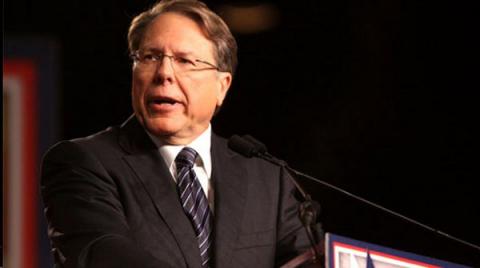How the NRA Drew Inspiration From the Black Panthers

From New America Media and The Root:
The National Rifle Association (NRA) was inspired by the Black Panthers? Yes, according to Adam Winkler, a professor of constitutional law at the University of California, Los Angeles School of Law, and author of Gunfight: The Battle Over the Right to Bear Arms in America (W. W. Norton, 2011).
Winkler said over the weekend on NPR's "On the Media":
"One of the surprising things I discovered in writing Gunfight was that when the Black Panthers started carrying their guns around in Oakland, Calif., in the late 1960s, it inspired a new wave of gun control laws. It was these laws that ironically sparked a backlash among rural white conservatives, who were concerned that the government was coming to get their guns next.
"The NRA mimicked many of the policy positions of the Black Panthers, who viewed guns not just as a matter of protection for the home, but something you should be able to have out on the street, and also protection against a hostile government that was tyrannical and disrespectful of people's rights. . . . "
Winkler wrote about the connection more expansively in “The Secret History of Guns,” a September 2011 article in the Atlantic that preceded the book's publication.
"The eighth-grade students gathering on the west lawn of the state capitol in Sacramento were planning to lunch on fried chicken with California's new governor, Ronald Reagan, and then tour the granite building constructed a century earlier to resemble the nation's Capitol," the article began. "But the festivities were interrupted by the arrival of 30 young black men and women carrying .357 Magnums, 12-gauge shotguns and .45-caliber pistols.
"The 24 men and six women climbed the capitol steps, and one man, Bobby Seale, began to read from a prepared statement. 'The American people in general and the black people in particular,' he announced, must:
" 'take careful note of the racist California legislature aimed at keeping the black people disarmed and powerless. Black people have begged, prayed, petitioned, demonstrated and everything else to get the racist power structure of America to right the wrongs, which have historically been perpetuated against black people. The time has come for black people to arm themselves against this terror before it is too late.'

"Seale then turned to the others. 'All right, brothers, come on. We're going inside.' He opened the door, and the radicals walked straight into the state's most important government building, loaded guns in hand. No metal detectors stood in their way.”
Winkler’s article continues, "It was May 2, 1967, and the Black Panthers' invasion of the California statehouse launched the modern gun-rights movement.
". . . The new NRA was not only responding to the wave of gun-control laws enacted to disarm black radicals; it also shared some of the Panthers' views about firearms. Both groups valued guns primarily as a means of self-defense. Both thought people had a right to carry guns in public places, where a person was easily victimized, and not just in the privacy of the home.
"They also shared a profound mistrust of law enforcement. (For years, the NRA has demonized government agents, like those in the Bureau of Alcohol, Tobacco, Firearms and Explosives, the federal agency that enforces gun laws, as 'jack-booted government thugs.' Wayne LaPierre, the current executive vice president, warned members in 1995 that anyone who wears a badge has 'the government's go-ahead to harass, intimidate, even murder law-abiding citizens.') For both the Panthers in 1967 and the new NRA after 1977, law-enforcement officers were too often representatives of an uncaring government bent on disarming ordinary citizens. . . ."
Despite the Black Panther Party posture in the 1960s, the Pew Research Center for the People and the Press has found that today's African Americans support gun control.
As reported last week, when asked whether gun ownership does more to protect people from crime or puts people's safety at risk, 54 percent of whites said gun ownership protects people from crime, but only 29 percent of blacks did. Fifty-three percent of blacks said it puts people's safety at risk. Only 33 percent of whites did.
Photos: NRA website; SF Public Library.































































































































































































































































































































